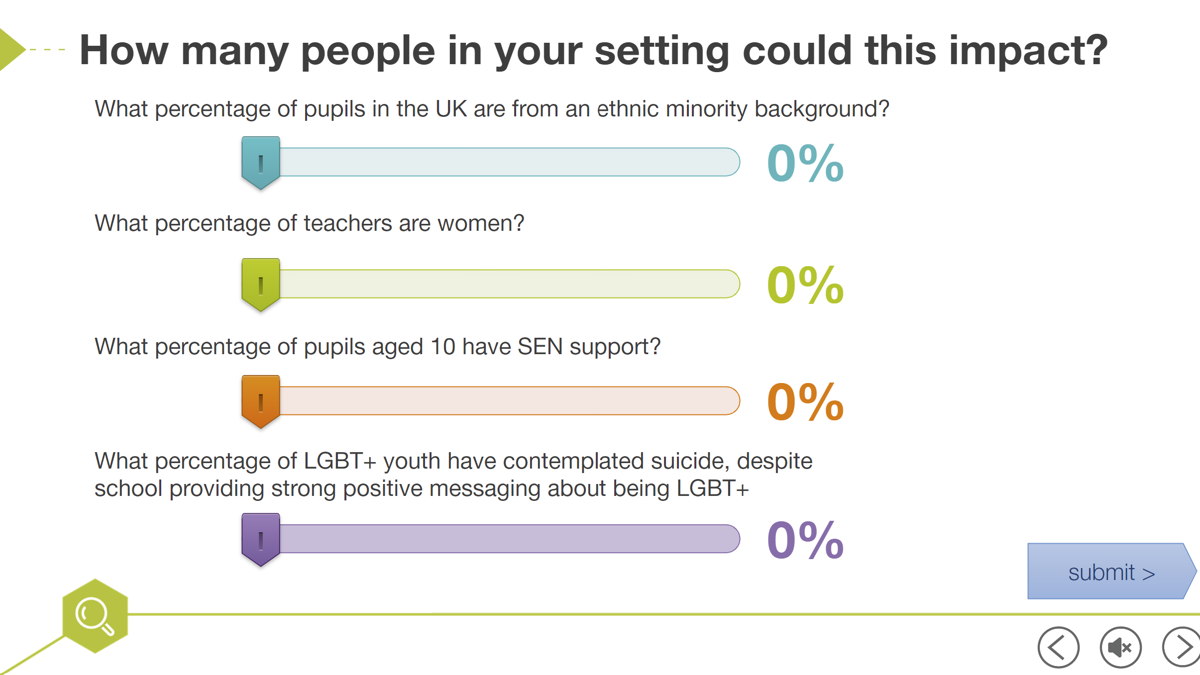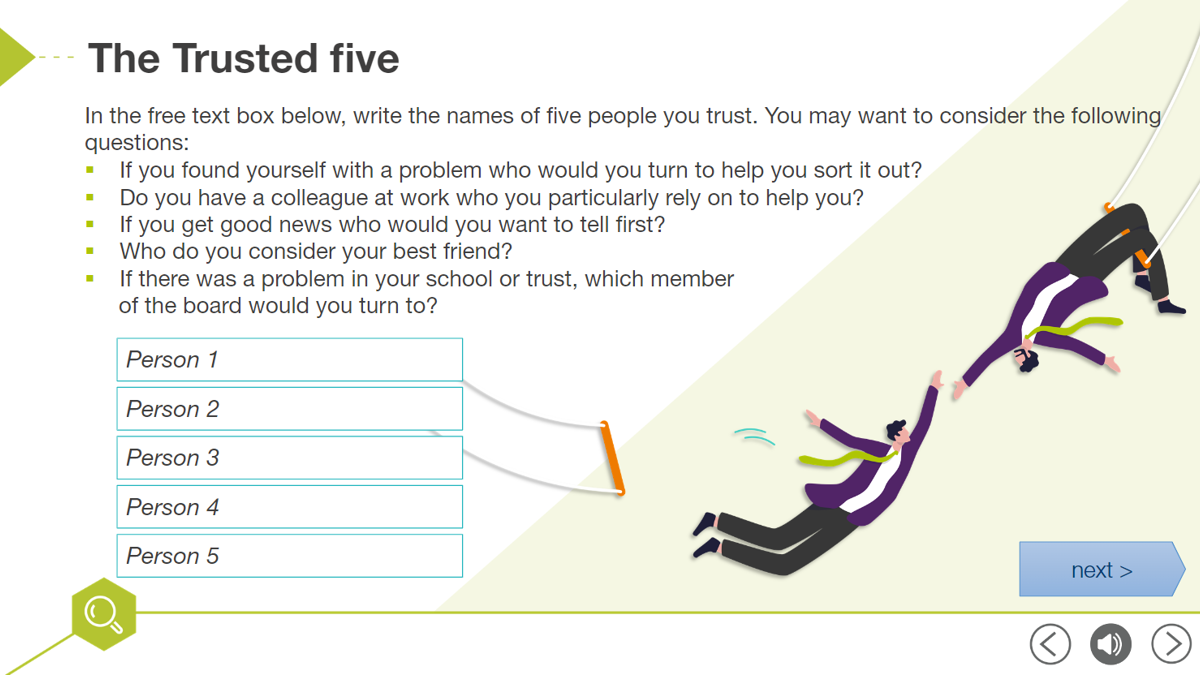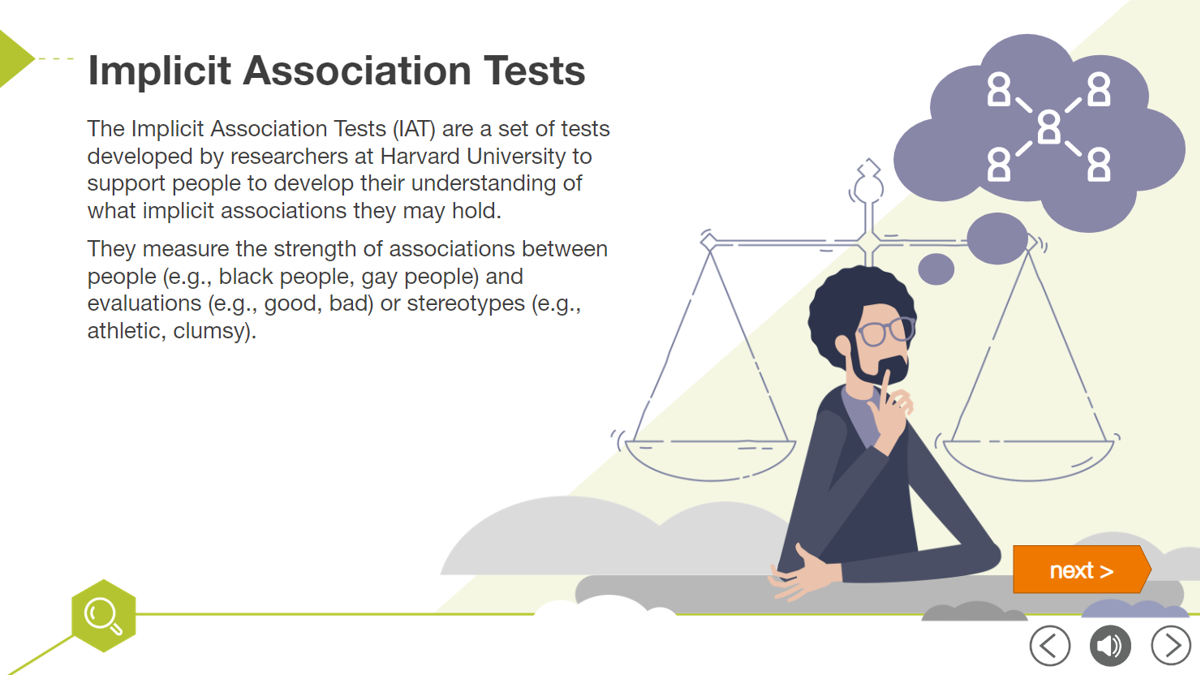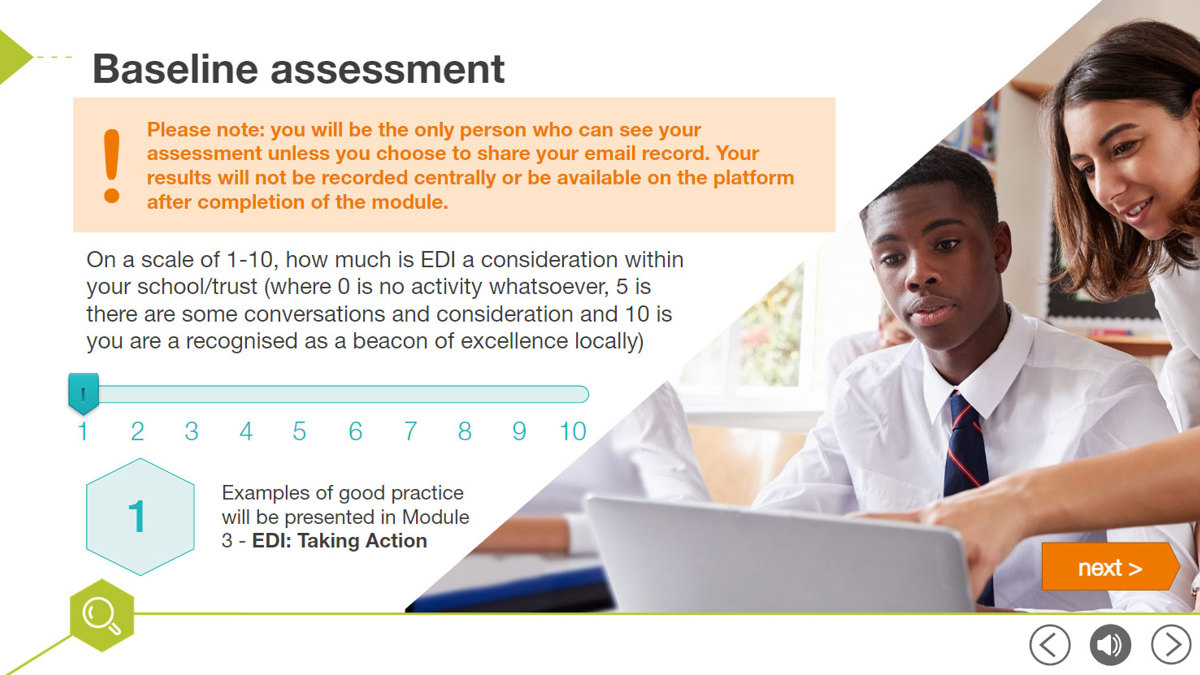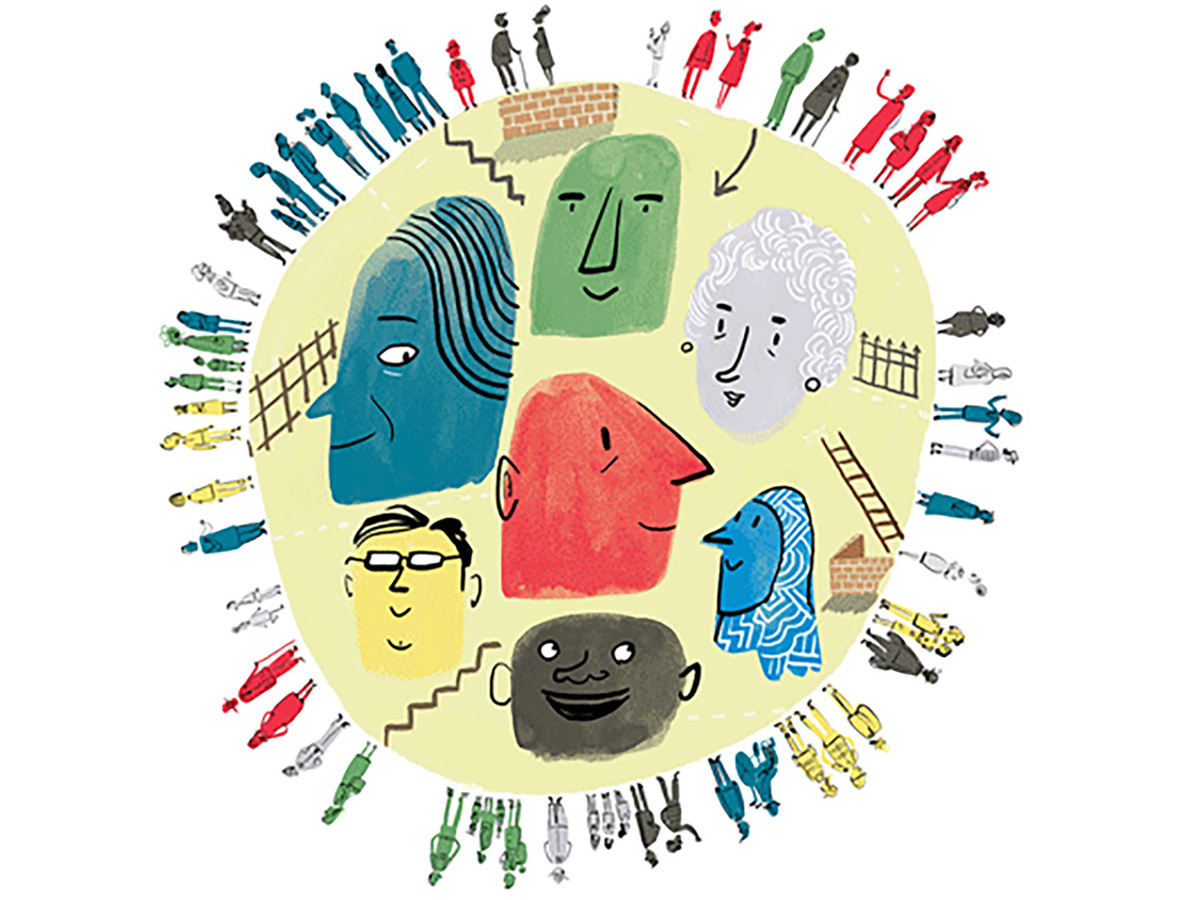Equality, diversity and inclusion e-learning programme

At a glance
This programme takes an in-depth look at equality, diversity and inclusion, and how governing boards can go beyond simple compliance to create a school or trust culture is inclusive for all and ensure the best outcomes for pupils.
You will cover:
1 hour
Programme description
NGA is pleased to have partnered with ASCL to develop a programme of e-learning modules intended to focus on creating an inclusive culture through practice, and going beyond compliance by giving users the knowledge, understanding and tools to do so.
The entire programme is freely available through the Learning Link trial as well as part of a full Learning Link subscription.
Some of these topics will challenge your implicit biases, associations and preconceptions, which may make you feel vulnerable or defensive, but the modules are designed to support you in having vital conversations about EDI in your schools. They will give you solid evidence to draw from and practical tools to make change happen, making sure every pupil, staff member, parent and other stakeholders feels included, valued and represented.
The programme will consist of the following modules:
Module 1 – First steps
The purpose of this module is two-fold:
- To introduce you to Implicit Association Tests (IATs) and ask you to consider some of your unknown biases (via the Harvard IAT)
- To enable you to make note of your, and your boards, current EDI considerations, activities and progress
The module will ask you to consider how comfortable you are when moving diversity and inclusion work forward in your school or trust and will enable you to gage your current level of knowledge around certain topics beyond legislation.
This module is available to all Learning Link subscribers now and freely available to those who sign up for a free trial of Learning Link.
Module 2 – Beyond compliance
This module will support you in gaining a baseline knowledge of the key concepts concerning EDI beyond compliance.
Moving beyond the legislation to a space where EDI is commonplace within schools/trusts will ensure that individuals can be their authentic selves and thrive.
Overall, this module will focus on:
- What EDI is and why it’s important
- The different types of bias and the impact on behaviour
- How and when brain function leads to bias
- How bias manifests
This module is will be available to all Learning Link subscribers and freely available to those who sign up for a free trial of Learning Link.
Module 3 – Taking action
In this module, you will explore what it means to carry out your duties as a governor/trustee through an EDI lens.
This module is intended to support you to embed your learning and take action within your own contexts. Content for this module will also include tasks for you to take away and explore with your board along with some practical exercises for you to complete ahead of starting the final module.
Module 4 – Measuring impact
This final module will aim to assess whether the learning contained in the series has had the intended impact - has your learning led to behavioural change, individually and collectively as a board?
The assessments that you undertook at the beginning of the programme will be repeated, and you will also be asked to commit to some future actions for change.
Learning Link
Start this programme
Learning Link subscribers
Log in to access this module or create an account.
Not yet subscribed?
Sign up for a free trial or purchase a subscription.
Preview slides
Who developed this programme?

Hannah Jepson
Business Psychologist, Co-founder and Director LGBTed, Director Engaging for Success
Hannah founded LGBTed, a national LGBTQ+ network, serves on the national equality and diversity forum for education and works with DfE, NGA, Governors for Schools, ASCL, NASBTT and other national education organisations to develop the national conversation around diversity and inclusion in education. Hannah is also the Director of Engaging for Success, supporting organisations in becoming more inclusive.

Adelaide Chitanda
Senior Advice Officer
Adelaide provides advice to NGA GOLD members, alongside writing for the website, magazine and weekly newsletter. She is also an EDI lead. Previously she was a research assistant for an insight and intelligence agency specialising in higher education.
